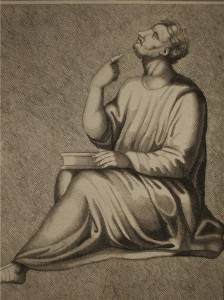A new article in Nature explores the placebo effect–therapeutic benefit from taking medicine without active ingredients. On the one hand, minimizing the placebo effect is a principle of ethical medical practice, a bulwark against hype, oversell, and charlatanism. Without controlling for therapeutic effects not caused by the drug, one may overestimate the drug’s potency. On the other hand, if the goal is to make the patient well, one might consider it ethical to use every option available—including whatever mysterious mechanisms the body can muster to augment the pharmaceutical therapy. The oldest tradition in medicine is that of helping the body heal itself.
Most interestingly, the placebo effect is highly individualized. This is not surprising, given the complex psycho-somatic interactions involved. Yet in an age in which personalized medicine is the idea of the moment, it seems essential to open the black box of the placebo effect. The authors summarize not only psychosocial variables known to influence patients’ responses to drugs—expectations, anxiety states, hypnosis, and so forth—but also a range of genetic and anatomical correlates of placebo responses. The strongest data are in the area of drugs for anxiety disorders and depression. Documented examples include polymorphisms in serotonin loci and in modulators of monoaminergic tone, plasma noradrenaline levels in interleukin-2 release, and brain anatomy in placebo analgesia.
Such data are exciting in historical as well as therapeutic context. In 1902, at the dawn of Mendelism, Archibald Garrod suggested that humans were as variable and individualized at the biochemical level as they are at the phenotypic level. If this were true, he continued, the phenomena of obesity, the various tints of hair, skin, and eyes, and “idiosyncrasies as regards drugs and the various degrees of natural immunity against infections” could be amenable to biochemical-genetic analysis.

Going further back, the Hippocratic physician Rufus of Ephesus noted that drugs act differently on different people, and that to prescribe appropriately the physician must ask the patients about their habits, their diet, preferences, sleep patterns, familial diseases, degrees of pain, and numerous other facets of the patient’s history and context. For the Hippocratic physician the body’s own powers of healing, mysterious though they be, were a crucial component of therapeutics. The Nature article’s abstract concludes with a nice statement of individuality that sounds like updated Hippocratism:
Personalizing placebo responses — which involves considering an individual’s genetic predisposition, personality, past medical history and treatment experience — could also maximize therapeutic outcomes.
Personalized medicine is often portrayed as a return to ancient Hippocratic ideals. It is and it isn’t. Despite the hype, “one-size-fits-all” medicine is too cost-effective to abandon. Personalized medicine has always been reserved for those who can pay for it, and little in the age of high-tech genomic medicine seems likely to change that. And yet, this attention to the unique constellation of essential and historical factors that combine in a given patient’s “irrational” drug response does bode well to be anodyne against some of the dehumanizing forces in the recent history of medicine.
You must be logged in to post a comment.